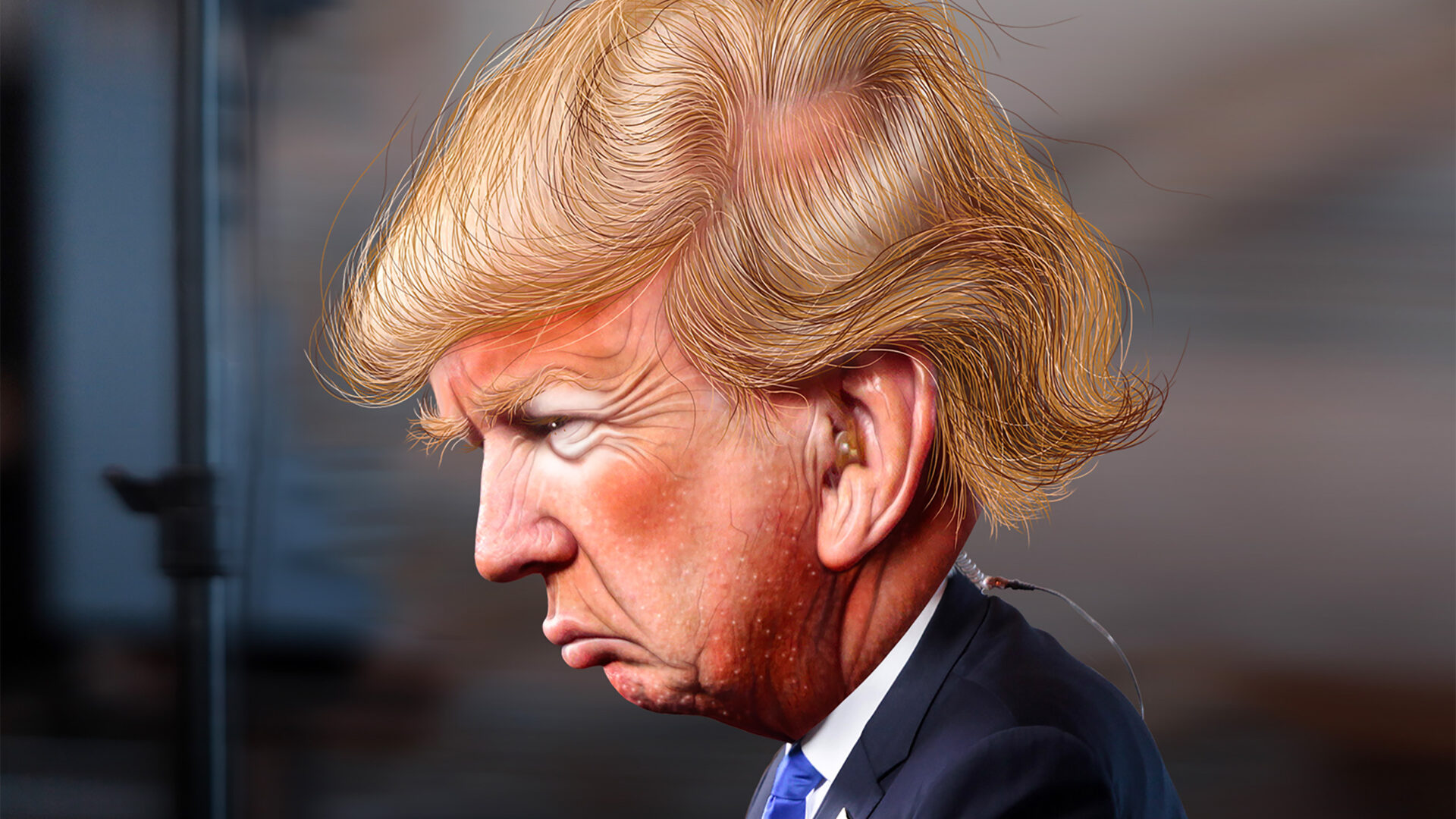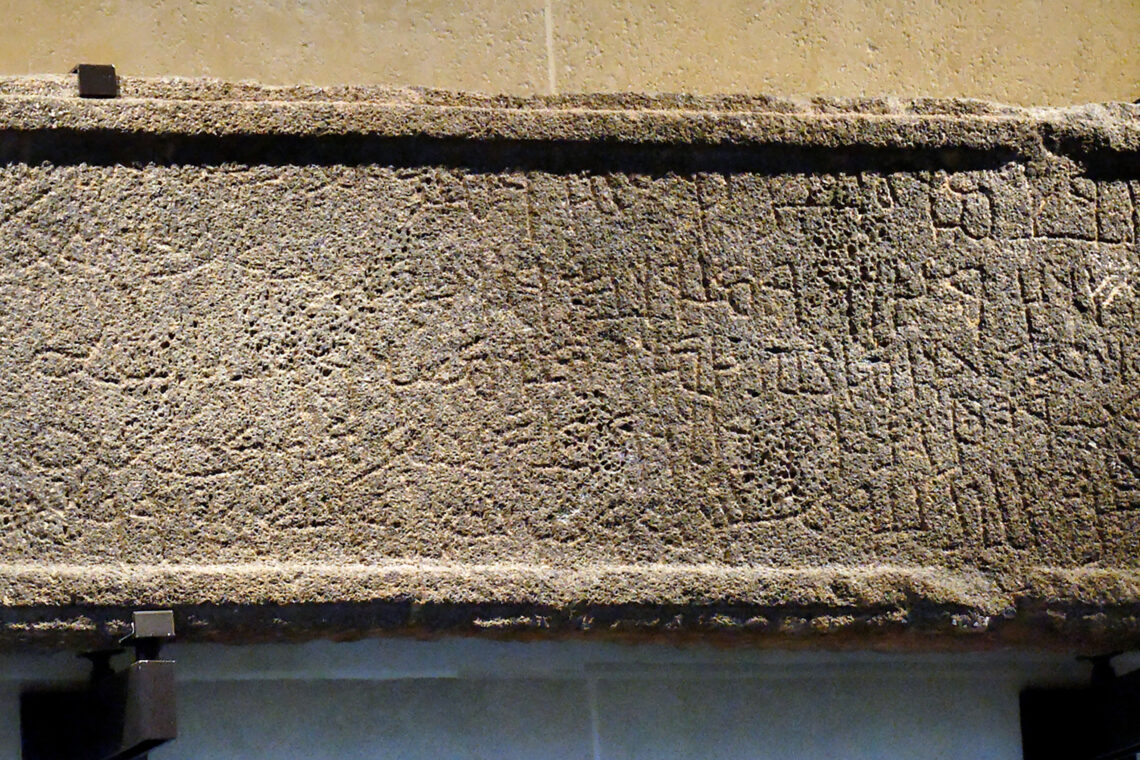In 2004, the Pulitzer-Prize winning historian Walter A. McDougall published Freedom Just Around the Corner: A New American History 1585-1828 to explain the exceptional rise of the United States as a country unlike any other known in the Old World or even human history. People had relied on a number of well-known theses, ranging from geography to religious liberty, to make sense of the rise of the American republic, but, for McDougall, the reason America stands out is because it is a nation of unsurpassed hustlers. American literature and film are densely populated by such archetypes, and yet there is also a collective, unspoken form of self-deception that insists on the United States being a land of law and order, which one might consider to be the old Puritans’ idea of a nation of saints. It is through this peculiar conflict that courses through the veins of American history and character that I have watched the advent of Donald Trump on the American presidential scene, the national and global tremors it generated, the visceral self-serving denunciations it allowed, and the gradual collapse of a superpower into a society of hysterical factions. There is absolutely nothing interesting about Donald Trump unless one sees him as an archetypal American character and not as a member of the postmodern cultural elite.
Impeached by the House of Representatives, de-platformed by Twitter, banned by Facebook, blocked by YouTube, dropped by one of his bankers, and subjected to a number of lawsuits, President Donald Trump is exiting the presidency with the same bang he entered it in 2016. The impeachment trial in the Senate will take place after he has vacated the White House, but that trial will determine whether the man has a future in American politics, or whether he will get to enjoy a post-presidential life with the same life-long privileges his predecessors were entitled to. If Trump loses on all fronts, he may be reduced to the kind of a uniquely American tragic character, a fallen man without ever having enjoyed the power of a king. He will join the ranks of countless other moguls and chief executives who regularly fall from grace because of sexual, financial, or even political trespasses.
Conrad Black, a high-society Canadian also known as Lord Black of Crossharbour, who once owned The Chicago Sun-Times, The Jerusalem Post and The Daily Telegraph in London, captured the truth about the bigger-than-life characters who propel the United States and make it the powerhouse it is. “America’s rise to greatness,” Black wrote in his book Donald J. Trump: A President Like No Other, “has been a mélange of toil, fortune, and heroism, but with a touch of the gimcrack and of the illusory: where dream and sham sometimes conjoin. Many great American personalities combined these elements to some degree in their own personalities.” Black himself is such a personality; according to the New York Times, he was jailed for “swindling his company, Hollinger International, of $60 million” but was eventually pardoned by none other than President Trump.
Donald Trump’s pedigree is quintessentially American: His grandfather, Friedrich Drumpf, arrived in America at the age of sixteen and, by most accounts, made a living operating whorehouses and clip joints before he died in the great influenza epidemic of 1918 at the age of forty. His grandson stepped into that same tradition of hard work and hustling. (Friedrich Drumpf sometimes operated his businesses “with no lease or title to the land.”) As a young man, Donald displayed a “prodigious work ethic” and knowledge of his father’s real estate business, “down to cleaning boilers, costing carpeting, and mixing anti-cockroach insecticide himself to avoid the expense of exterminators.” And like a restless hustler, he started side businesses in the worlds of prizefighting, casinos, beauty pageants, and reality television. He convinced the “premier shirt-maker” Van Heusen to help him launch his own clothing brand, consisting, as Black describes it, of “dark, sober business suits, white shirts, and plain or striped, but not patterned, neckties, that were long enough to reach the waist of even a portly man.” He licensed his name to sell “mineral water, fragrances, furniture, décor, sunglasses, wallets, and mattresses,” not to mention food establishments like “Trump’s Bar, the Trump Grill, and the Trump Ice Cream Parlor.”
It was only a matter of time before Trump started his own university, mortgage company, and even a health plan called the Trump Network, which the Donald described in 2009 as a venture offering “people the opportunity to achieve the American dream” by paying “$139.95 for a urinalysis, $ 69.95 monthly for the vitamins, and $ 99.95 for a follow-up urinalysis every six months.” In the end, as his 2016 campaign managers Corey Lewandowski and David Bossie wrote in their book Let Trump Be Trump: The Inside Story of His Rise to the Presidency (2017), Donald Trump was “a man with over six hundred businesses” who, unlike average politicians, “got things done.” Was it surprising that this avid reader of the National Enquirer would trademark Ronald Reagan’s political slogan “Make America Great Again” in 2010 and run for president on that platform in 2015?
The showman, New York entrepreneur, and salesman had mastered the art of the deal long before he pursued the presidency to act on his strong and unchanging political beliefs. In 1987, he took out full-page ads in major newspapers dutifully addressed to the American people, complaining about how Japan, Saudi Arabia, and other countries are taking advantage of the United States. “The world,” Trump wrote in typewritten script, “is laughing at America’s politicians as we protect ships we don’t own, carrying oil we don’t need, destined for allies who won’t help.” More than a decade later, he explored representing the Reform Party and running against the Republican George Bush and the Democrat Al Gore because, in his view, both supported NAFTA and the World Trade Organization. “I felt confident,” Trump asserted, “that my argument that America was being ripped off by our major trade partners and that it was time for tougher trade negotiations would have resonance in a race against the two Ivy League contenders.”
A profoundly superstitious man who doesn’t drink alcohol, Trump dined on “two Big Macs, two Fillet-O-Fish, and a chocolate malted” on his own plane during his first presidential campaign. His blue-collar tastes, the conservative thinker Edward Luttwak told us in 2017, provoke contempt among the respectable classes. Anne Toulouse, author of Dans la Tête de Donald Trump, wrote that “le Donald” appears like “un bison dans la prairie, comme un taureau dans le rodéo, comme le shérif dans un western.”
It is by now abundantly clear that Trump seems to have been born to prove that conventional wisdom in business and politics is the biggest hoax of all. In Let Trump Be Trump, Lewandowski and Bossie inform us that he “launched his presidential campaign with a tweet, an escalator ride, and a staff that mostly wouldn’t know the difference between a caucus and a cactus” and added: “There were no pollsters, media coaches, or focus groups. No speechwriter, no ‘senior strategist’ or any of the other types of ‘professional’ political consultants like the ones who had failed for the last eight years to elect a Republican president.” The authors ended their account by making a prediction that stood the test of time: “Donald Trump is not, nor will he ever be, a part of the establishment. He’s not, nor will he ever be, a politician in the traditional sense of that word. And he is not someone who goes back on his word. For Donald Trump, loyalty is the currency of the realm, and nothing hurts him deeper than when someone he trusts is disloyal.” And he is generous, too, despite appearances. Dan Scavino, his “Twitter lieutenant,” who was once Trump’s caddy at the Briar Hall Country Club in Westchester, New York, still has the two one-hundred-dollar bills that his boss gave him for a tip.
After surviving investigations about his complicity with Russians, an impeachment trial because of an out-of-line phone call to the president of Ukraine, accusations from a porn star and a Playboy model, and being constantly scolded for not wearing a mask during the worst pandemic since the one that took his grandfather Friedrich, Trump is now leaving the White House without attending the inauguration of the new president who has vowed to restore the ways of the ancien régime. He will be riding off into the sunset of some sunny frontier, where taxes are low and anti-Communism is strong, accused of being the first president in American history who incited his supporters to invade Congress and endanger the foundations of the very republic over which he presided. Will he grant himself and his family and loyalists a pardon to protect himself and his people from the sheriff who will be hot on his trail? Time will tell.
In the meantime, Trump leaves behind two political parties trying to recover from the storm he unleashed on them in the last four years, media outlets strategizing on a future without its chosen villain, and tens of millions of loyalists wandering the land and hoping for a Second Coming.





Comments are moderated by the editor and may not appear on this discussion until they have been reviewed and deemed appropriate for posting. All information collected is handled in a manner consistent with our privacy policy.